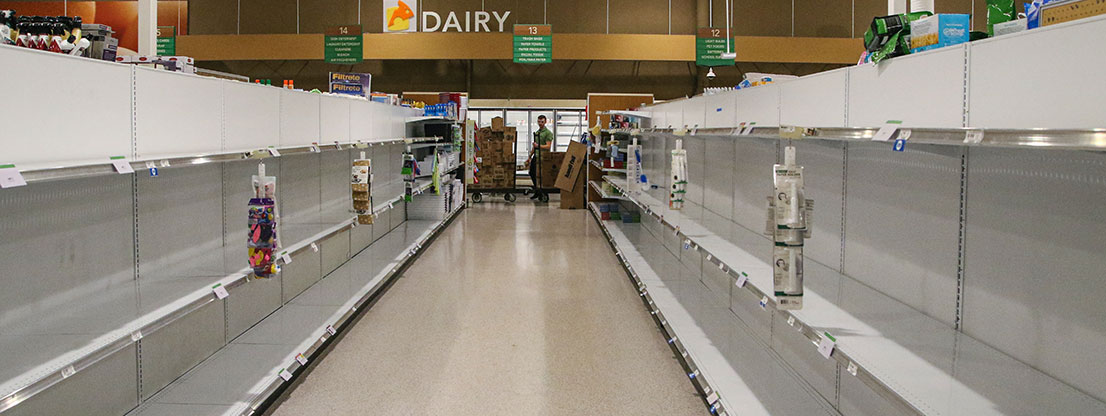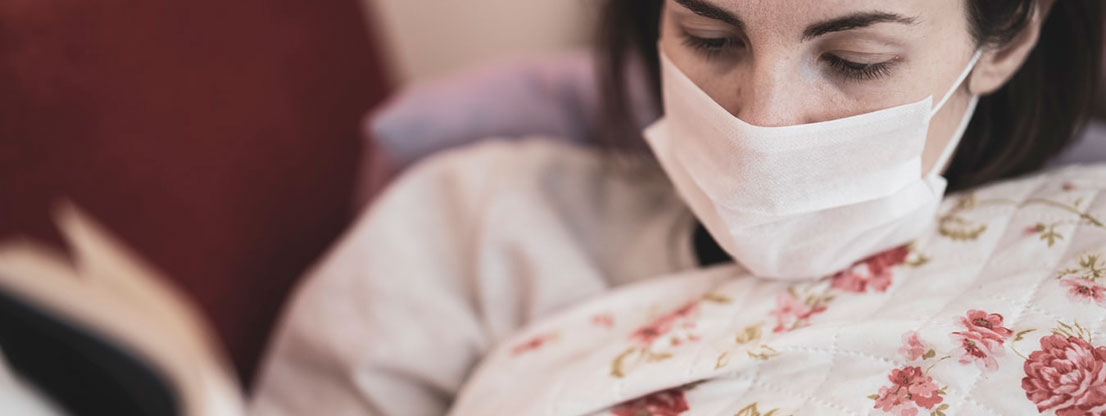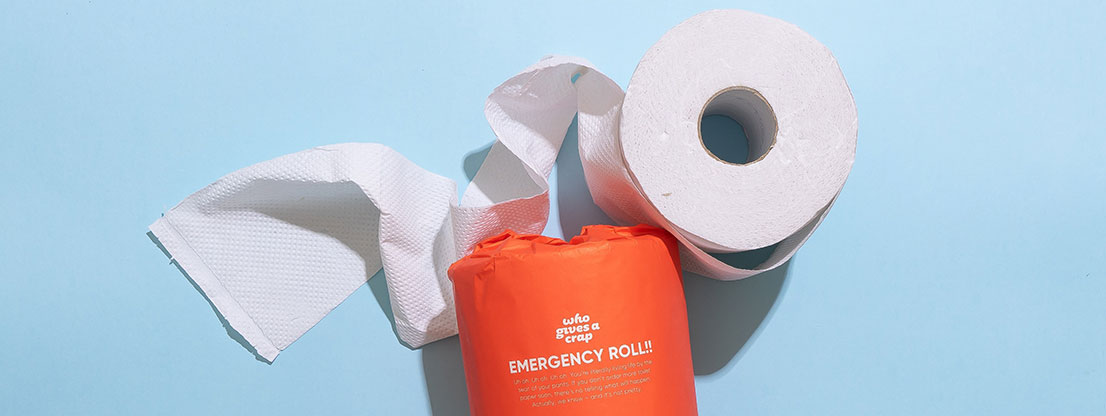No matter if pasta, hygiene products or toilet paper. If the number of infections increases and measures to contain the corona virus are tightened, many everyday items disappear from supermarket shelves as if by magic. What was thought to have been overcome in the initial phase of the pandemic can now be experienced again in many places. The supermarket is one of the places where we are directly confronted with the effects of the pandemic, even if the lack of many articles is a homemade problem. The coronavirus can at best be blamed indirectly for the lack of durable food and toilet paper. Our supply chains are intact and toilet paper and pasta manufacturers are producing at full speed. But the culprits can be quickly identified: hamster buyers.
If you believe the comments circulating among friends and acquaintances and in the social media, there are piles of toilet paper in many of the Federal Republic’s storerooms for the coming years. The hamster buyers have quickly drawn a lot of malice and ridicule. What does anyone want to do with piles of toilet paper? In any case, it is not essential for life. But mockery and derision quickly turn into displeasure when your own small supply of toilet paper runs out and there is no replacement available in the third supermarket. Many a person will certainly ask himself at this point whether he should not have hoarded a bit more. The following sections deal with the question of what motivates people to buy hamsters in the first place and how we can be mindful to prevent imprudent spontaneous actions.

1. The impact of the pandemic on us humans
For most people, the coronavirus is primarily a media event. A virus cannot be seen with the naked eye and as long as we or someone we know does not have to deal with a severe course of the disease, the effects of the disease are not directly noticeable. In contrast, we come into contact with the pandemic mainly through the media. We are constantly confronted with new records of infection and death rates on our smartphones, television and radio. This gives rise to a diffuse feeling of threat, which gradually becomes anchored in the consciousness of each individual. Such a collective sense of threat can quickly develop dynamics that are difficult to predict and sometimes illogical. One reason for this is that the modern risk biology of precautionary measures in a pandemic can do little to prevent it.
The first wave of the pandemic showed how media events can change the sense of threat to many people. The moment when the friendly request of the German Ministry of Health not to panic turned into a pleading appeal was exactly the starting point for the first large-scale hamster purchases. [1]

2 Why do people hoard?
2.1 Is hoarding a rational decision?
The professor of economics Dr. Christian Rieck does not only blame individual hamster buyers for the disappearance of toilet paper and other articles from our supermarkets. He sees the supply shortages as the result of rational decisions made by many people.
Normally, everyone has a small supply of essential items at home, which lasts for about 3-5 days, says Rieck. These small supplies fluctuate over the course of a week. If enough is in stock for five days on the first day of shopping, then just before the weekend shopping, the stock might only last for a day or two. A difficult to assess situation like the spread of a virus unsettles many people on various levels. In a pandemic, for example, people worry about catching a cold and being unable to go shopping for several days because of hygiene regulations and out of consideration for other people. So it makes sense to stock up on supplies for a few extra days, just in case. But it is a logical decision to increase your own stock by a few days. If a lot of people make such a decision at the same time, there is no need for large-scale hamster shopping to cause a shortage in the supermarket. If fifty people a day in a shop decide to take an extra pack of toilet paper with them, the stock will soon be depleted.
Empty shelves, in turn, have an impact on the next customer who comes into the supermarket and would like to replenish his stock. He is now standing in front of a shelf that has been bought empty. It is suddenly not so easy for him to buy the things he needs. Because of the behaviour of the others, he comes to the conclusion that he must also adapt his behaviour accordingly. So as soon as the desired goods are available again, he buys toilet paper for a fortnight instead of just one week. In this way, small adjustments in buying behaviour can swing each other up. The empty shelves, however, give the impression that extensive hamster purchases have taken place. [2]

2.2 Emotional actions in crisis situations
But of course there are the classic hamster purchases. This has to do with the subjective feeling of threat. Every person processes emotional stimuli differently and reacts with his own subjective risk assessment and appropriate behaviour. For example, it is known that many people are much more afraid of a plane crash than of a car accident, although statistically speaking, a flight in a plane is much safer. And in situations of uncertainty, the following applies in most cases: If I do not know whether something is bad, I prefer to behave as if it is bad. [3]
A hamster purchase, even for non-essential items such as toilet paper, can at least to some extent restore a sense of control in a situation perceived as a threat. After all, one has done what one could do to prepare for the crisis. Such a sense of control is in short supply in the pandemic. [4]

3. When does hoarding make sense?
The question of whether hamster purchases are a logical or purely emotional decision, however, always depends on the overall mood in society. If everyone panics and buys the shops empty, buying your own hamster can certainly be a sensible survival strategy. However, if the supply situation is not threatened, panicky hamster purchases are not worthwhile. [3]
The pandemic may have shown how disruptive the system of global supply chains can be, but the food and toilet paper supply has shown one thing. It stands on solid ground. Empty shelves are being followed by new supplies. Once the initial panic reaction subsides, the shelves fill up again after a few weeks. So the shortage in the supermarket was not due to a breakdown in supply chains, but to people’s behaviour. May there also be much criticism of agriculture in the West, in the pandemic it proved to be a guarantor of supply security. [5]

4. keep a cool head with mindfulness
In the corona pandemic it is worthwhile to look at all developments from a distance and try not to panic even in threatening situations. Those who are careful with themselves and others in a crisis situation are better able to get through difficult times and do not let their emotions carry them away so easily. Careless hamster purchases in a problematic situation are certainly lacking in solidarity, as they put other people in need of care. Mindfulness means consciously treating oneself and others in a benevolent manner and reflecting one’s own worries and fears. In this way you can make the right decisions with a clear head. The crisis should not promote a selfish struggle for survival, but rather sensitise us to the togetherness and needs of our fellow human beings. A crisis situation is best survived in the community. [6]
Small mindfulness exercises can help you in difficult situations to reduce stress and free you from fears. For example, you can find more inner peace through breathing or meditation exercises. We at sonamedic offer guided meditations with binaural beats and relaxation music on different topics. Even beginners can quickly find their way around.
Sources:
[1] Alkemeyer, Thomas / Bröskamp, Bernd: Die Corona-Gesellschaft: Analysen zur Lage und Perspektiven für Zukunft. Hg. Michael Volkmer/ Karin Werner, Seite 70.
[2] Prof. Dr. Christian Rieck: Hamsterkäufe und Unfall-Gaffer: Mikromotive und Makroeffekte, vom 09.03.2020. Datum des Zugriffs 03.11.2020. Online.
[3] Schubring, David: Warum hamstern wir? Ein Emotionsforscher erklärt die leeren Supermarkt-Regale wegen der Corona-Angst, vom 03.03.2020, Datum des Zugriffs 05.11.2020, Online.
[4] Psychologie: Was hinter Klopapierhamsterkäufen steckt. 16.03.2020. Datum des Zugriffs: 05.11.2020. Online.
[5] Winterberg, Lars: Die Corona-Gesellschaft: Analysen zur Lage und Perspektiven für Zukunft. Hg. Michael Volkmer/ Karin Werner, Seite 334.
[6] Röther, Christian: Mit Meditation gegen Coronaängste: 12.04.2020. Datum des Zugriffs: 03.11.2020. Online.




